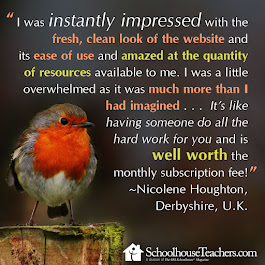This post contains affiliate links - using affiliate links from Homeschool Coffee Break helps fuel this blog - thank you!
You know what made me even more nervous than teaching algebra at home? Teaching science at home. Well, not the teaching science part as much as the science labs part. I didn't want any part of dissections happening in my house and I certainly didn't want to be in charge of that. I wouldn't have minded Chemistry or Physics experiments, but where to begin? Honestly, I was relieved that my kids chose other college and career paths that didn't rely heavily on science, but I think they could have enjoyed and learned so much more given the opportunity to do more hands-on.
A lot of homeschool parents don't feel confident in providing the kind of lab experiences that their college-bound high schoolers should have. Maybe just a little creativity and curiosity will get you started if you're willing to try it at home, along with a solid virtual resource. Or maybe you'd like your student to have an intensive in-person lab experience that's designed for homeschoolers and teaches Christ-centered science.
Greg Landry and College Prep Science may have solutions for you. I'm happy to have Greg sharing this guest post with some practical tips for successful Homeschool Science Labs:
***************
This post is sponsored by College Prep Science. Copyright 2020 by Greg Landry.
In college and graduate school, I fell in love with science labs. I loved being able to "see" the science happening rather than just reading about it. As a homeschool dad and former college professor, I'm passionate about teaching science, in particular, Christ-centered lab science to homeschooled students. But, I know that on average we don't provide enough lab experience for our homeschooled students - often very little. And, for many of them, that puts them at a tremendous disadvantage going into college and in understanding how science works.
If you're a homeschool parent, may I offer a few homeschool science lab suggestions:
- Allow your 6th-12th grade students to explore science, dissections, interactions of matter, experiments, etc. Most students love exploring and experimenting once they get started.
- Teach them the scientific method and why it's important.
- As they explore, teach them to record their observations and results.
- Teach them to create a lab report (the written result of the scientific method) for each of their explorations or experiments.
- Keep those exploration and experiment notes and lab reports in a lab notebook as a record of their work. Label it for the subject and time period - colleges may want to see it.
If you'd prefer not to dissect/explore/experiment at home, we offer two options that enable your students to complete their lab requirements for Biology, Chemistry, and Physics:
1. In-Person Two-Day Labs - 15 Nationwide Locations
Our two-day Biology and Chemistry Lab Intensives that allow students to complete a school year of Biology or Chemistry labs in two days or both of them in three days. I have the privilege of interacting with 7th-12th grade students as we cover wide-ranging and in-depth college-prep labs, appropriate background information, and lab reports. These are offered at 15 locations across the U.S. Students earn a full school year lab credit for each intensive they complete.
2. Our Virtual Homeschool Science Laboratory - Accessed from a Computer
This enables students to virtually walk into and use a great science lab - from their computer at home. All the experiments are ready to go with background information and step-by-step instructions. Students actually perform the experiment from their computer - filling a beaker with hot water, putting a thermometer in the water to measure the temperature, mixing chemicals by pouring from beakers, determining the mass of items in a physics experiment by placing items on a balance, etc. It's very realistic and enable them to experience the lab, collect data, and produce lab reports over the period of a school year at a pace they choose. Students earn a full school year lab credit for each set of labs they complete for either Biology, Chemistry, or Physics.
In the words of a homeschool parent . . .
"Greg, My son Mark attended your two-day Biology Lab Intensive. He's in 8th grade and hasn't been especially interested in science. I asked him if he wanted to attend your intensive and he said no. I told him he was going to because we needed to get his labs done and this was a good way to do that."
"I dropped him off that morning and he was pouting. I picked him up that afternoon and he talked incessantly on the way home (this is my quiet child). It not only amazed me that he was so excited about science but that he loved doing this all day for two solid days. That kind of excitement in a child brings so much joy to a mother's heart. He also loved your 'real-life lessons' talk. Thank you so much, Greg, for your ministry to our children!" ~ Beth (a grateful mom)Homeschool dad, scientist, and former college professor, Greg Landry, offers live, online homeschool science classes, Homeschool ACT Prep Bootcamp, the Homeschool Mom's Science Podcast, in-person two-day science lab intensives nationwide, freebies for homeschool moms, and student-produced homeschool print publications.
***************
©2006-2020 Homeschool Coffee Break. All rights reserved. All text, photographs, artwork, and other content may not be reproduced or transmitted in any form without the written consent of the author. http://kympossibleblog.blogspot.com/
We are a participant in the Amazon Services LLC Associates Program, an affiliate advertising program designed to provide a means for us to earn fees by linking to Amazon.com and affiliated sites.












































0 comments:
Post a Comment
I love comments! It's like visiting over a virtual cup of coffee.